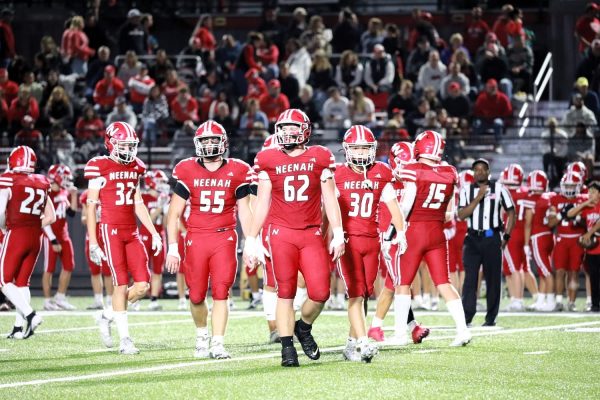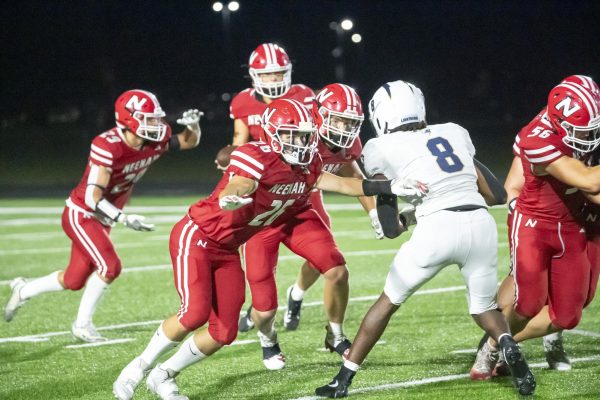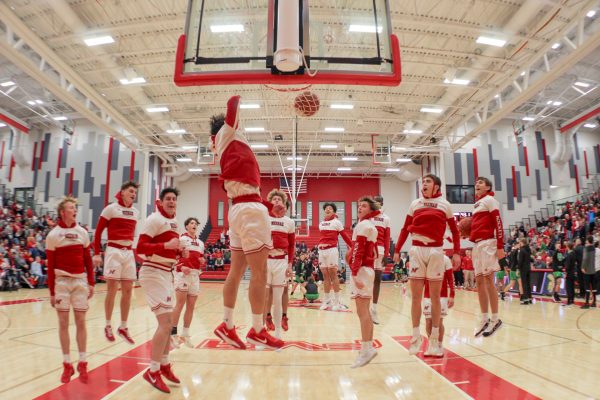Column: Explosion of Fantasy Sports
It is the year 2065. The big game is on TV. Everyone is frantic and excited, which meets expectations. Except something is different about the game day atmosphere. Each person is hovered around a computer entering in his or her last bets and roster changes. As the game begins, no one is cheering for a team. Individual players get cheered for as objects. Camaraderie is almost non-existent and the recognition of skill of the talented players is only seen as a benefit because it means more money can be earned. Rewind 50 years, and none of this chaos has happened yet; but, the potential exists. Who knows what will happen if fantasy sports keep growing the way they are today. According to Eilers Research CEO, Todd Eilers, “Daily games… will grow 41 percent annually, reaching $14.4 billion in 2020” as stated in Darren Heitner’s article for Forbes Magazine. Countless realms exist that fantasy sports are looking to enter in hopes of gaining more prestige and of course, monetary benefit. But for everyday people, who live everyday lives, fantasy sports are exploding in the recruitment of women, the typical work day, and even team loyalty.
As the world of fantasy sports continues to expand, so does its fan base. Women are breaking the stereotype of the typical testosterone filled living rooms full of fiery men bidding for their favorite players to be on their beloved team. When women get involved, some actually find games more fun to watch than they had before. Laura Wimer, an example of this notion, written in an article titled “Fantasy Sports Games See More Women in Their Future” says, “It made it more interesting,” when describing watching football while having money on the line. Although the NFL would be primarily seen as a man’s sport, especially looking at their 70 percent popularity rate, the women now have 50 percent and room for improvement as Brent Schrotenboer says in his article for USA Today. Additionally, Forbes magazine confirms that teams use fantasy sports as marketing in the modern day, the appeal to women will only grow past the 6.4 million women who already play in hopes to increase the NFL revenue from $10 billion to $25 billion by 2027. In the article “Leagues See Real Benefits in Daily Sports,” it is stated that women now have a 40 percent interest rate in fantasy sports. The key is for companies to crack the code on how to market to women in order to unlock a new expanding market.
Nevertheless, fantasy sports are becoming more and more relevant in the lives of everyday people. If money is on the line, people are going to put time in to ensure they have the best opportunity to make their pockets jingle even a slight bit more. Because of this, fantasy sports are seeping into the workplace. Over 18.3 million people play fantasy football during the workweek. In addition, approximately 18 million people will put in roughly two hours a week managing their make believe team. Doing the math, in an article “Fantasy Football’s Impact on the Economy Is Staggering” author Kyle Coulam calculates that would add up to about $895 million per week in lost productivity over the 15-week season. With almost everything being accessible on both computers and mobile devices, the temptation only grows as information becomes easier to acquire. With this in mind, it seems impossible for fantasy sports to implode in a time like this.
Although more fans keep getting entangled in the world of fantasy sports, that does not mean the players themselves are always benefitting. As people start to get serious about their fantasy teams, they start to lose the respect and gratitude of the player and the team. All they now seem to care about are the stats and look at the players more as an object. As seen in the article, “Leagues See Real Benefits In Daily Fantasy Sports,” Bud Selig, former Commissioner of Baseball, believed that instead of cheering for their favorite teams, fans would rather cheer for themselves because they wanted more money. He felt that this would diminish the character of the sport. “Players would not be viewed by fans as exceptionally skilled and talented competitors but as mere assets to be exploited for ‘fast money,’” Selig wrote in a statement sent to federal court in 2012. Although many people advocate this, major league sports have partnered with fantasy sports companies regardless. A common trend exists, and that trend is money.
Ultimately, fantasy sports are not just growing, they are exploding. The growth seen within the last year is mind boggling. As women enter the world of fantasy sports, the fan base only grows along with the companies whose primary motivation is money. Since it is easy to get involved, and hooked, for that matter, millions of people bring fantasy sports into their work day to make time to try to get the most perfect roster. As all of this continues to increase in America, some people are weary that the culture of sports themselves may change.









